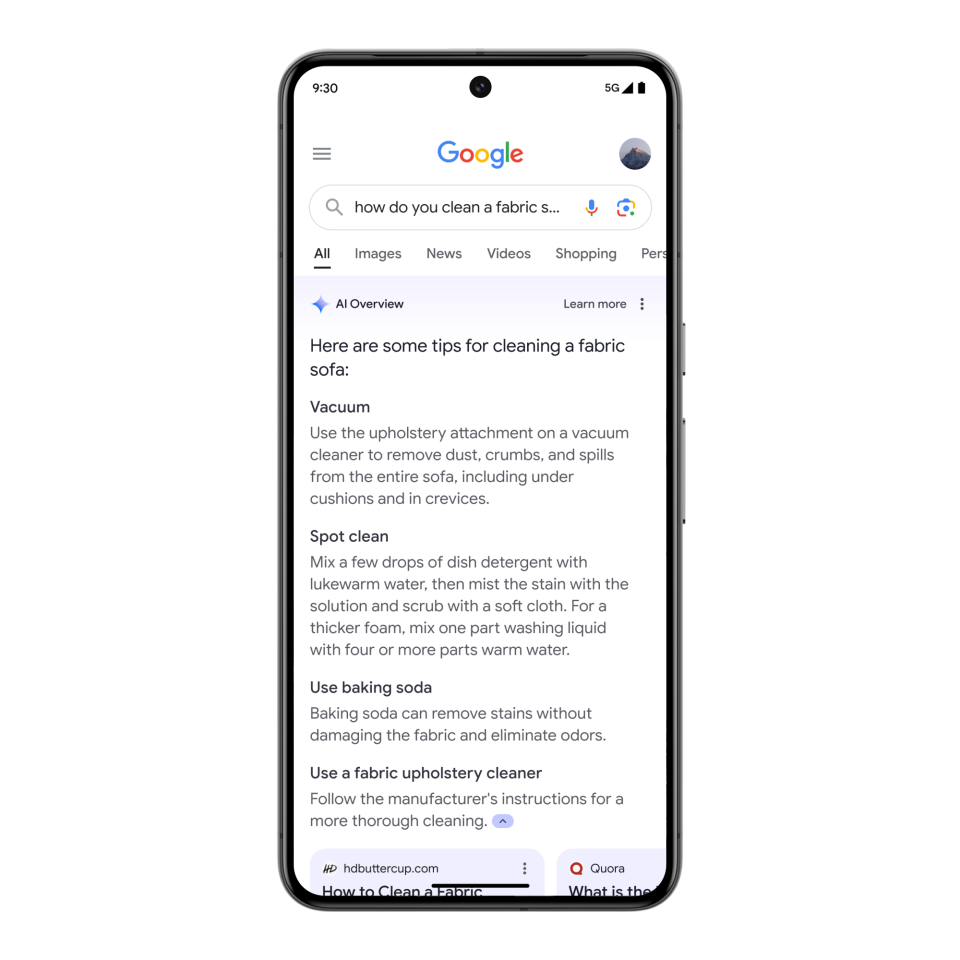Google all in on AI and Gemini: How it will affect your Google searches
For Google, Gemini season has arrived early.
Gemini, Google's language model that powers its Gemini AI chatbot and other multimodal tools, is expanding into other apps and features in the coming months, the tech company announced earlier this week at their annual developer conference, Google I/O.
"Gemini used to be just a chatbot, and now we're seeing it become a personal AI assistant" says Amar Subramanya, vice president of engineering for Gemini experiences, in an interview with USA TODAY. "We think that's super powerful going from some relatively basic commands that you could issue to the assistant to now having the power of this large language model with all of its reasoning capabilities and then combining that with all of the Google apps and services."
While some of the updates will initially roll out for developers and Gemini Advanced subscribers, one change might be more noticeable to most Google users: Gemini summaries appearing in default search results.
Best AI?: Who has the best AI? Tech expert puts ChatGPT, Gemini and Perplexity to the test
Here's what to know about some key Gemini updates and coming changes:
AI in Google Search
Some users may have noticed that some of the results of their Google searches don't look the same anymore. That's because Gemini is in the mix now.
The tech company has said that AI is the future of search, and apparently the future has arrived.

Google has begun rolling out AI Overviews, a feature powered by the Gemini foundation model that presents AI-generated answers and summaries to some users' search queries, appearing above the traditional search results to which we've become accustomed. Not all searches will get an AI Overview, but queries that can be presented with summarized results will be.
The previous Search Generative Experience that included a similar feature was opt-in for users, but AI Overviews aren't. The change is rolling out across the U.S., and the company plans to expand it to worldwide users by the end of the year.
Can you turn off AI Overviews in Google search?
No. AI Overviews are a part of Google search now and will show up if your queries trigger them.
But you can whittle results by filtering for web links (navigate to the "more" tab and tap/click on "web" to filter) to get something closer to the legacy results page that perhaps you're looking for.
How can you tell where the summaries are from?
Don't worry, the AI's sources will be cited. Website links will be listed within the AI Overview summary.
The real question is, will users actually take the time to look at the sites from which the summaries have been generated or to continue to research beyond the summary? It's hard to know just yet so early in the search shift.
Liz Reid, vice president of search at Google, wrote in a blog post that "links included in AI Overviews get more clicks than if the page had appeared as a traditional web listing for that query."
As a journalist, it's equal parts fascinating and discouraging to think that someone searching for information that may be provided in my writing or that of my colleagues may be used to enlighten a user on Google Search, but they may not even realize the resource or see the original piece.
Worse, what if context isn't clear? In a world wide web where digital literacy is increasingly tested, how can you fact check?
Google first, then Apple?: Google is making smart phone upgrades. Is Apple next?
"Last year, we launched a feature called Google Double-check," Subramanya says, and it's supposed to help users check information generated by Gemini.
"We're going to continue to make progress here," he says. "That was our first step in terms of helping people do their research in the right ways."
Google is in its Gemini era – and soon, all of us might be, too.
This article originally appeared on USA TODAY: How Google AI Overview in search will work (and how to turn it off)

